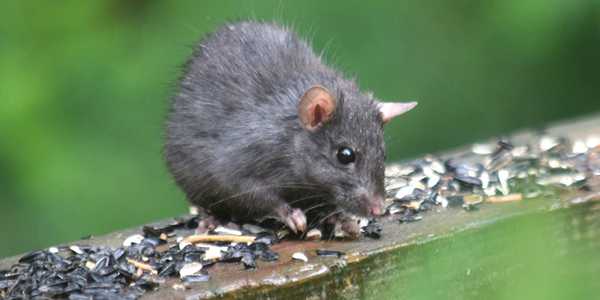Dental Implants: A Permanent Solution for Missing Teeth
4 Foolproof Ways to Banish Rats from Your Yard for Good
Are you sick and tired of the awful smell emanating from your backyard and the embarrassment that comes with it? Rats and rodents are the main sources of this smell. The smell of their urine is not only harmful to the environment but also to your health.
Are you sick and tired of the awful smell emanating from your backyard and the embarrassment that comes with it? Rats and rodents are the main sources of this smell. The smell of their urine is not only harmful to the environment but also to your health.
The good news is that you can keep rodents away from your yard with simple and affordable methods. Fortunately, we will tackle the four best ways to do this. So buckle up, and let's get rolling to reclaim your yard from these parasites and preserve your smile and that of your loved ones.
Why Rats Love Your Yard?
Before we even get to the solution, let us understand why the rodents love your yard so much. For your yard to be this attractive, some of these factors must be prevalent:Abundant food sources, from fallen fruits and vegetables to unsecured garbage. Shelter opportunities. Is your yard bushy? Do you have woodpiles? These signs suggest that they might be perfect homes for rats and rodents.Bird baths provide water and dripping taps, which deliver water in close proximity to the birds.Rats are greedy animals, and they always hunt for easy catches and nice corners to hide in. Your yard is also likely to have different environments that may be favorable for rats without you realizing it. But fear not! If you know how and where they are getting in and take the necessary steps, your outside area will NOT attract these critters.Get rid of food sources
Like people, pests are always drawn to areas with a lot of food for their survival." Practical means of eradicating them are to remove any food present in the backyard, as they are rodents. This will make them search for their foods from sources other than pesticides and end up harming the rats in one way or another.
However, this does not mean you should not plant fruits or vegetables in your backyard. No! Always make sure to:
Pick fruits and vegetables on time as they ripen.
Don't leave pet food outside.
Clean up spilled birdseed and store it tightly.
Use white liners, keep garbage cans tightly sealed and clean, place empty cans inside if possible, and cover your compost bin.
Rats have two short legs and a very good sense of smell, which allows them to locate food from a distance. When you reduce their access to food that they can easily get, you are effectively taking away one of these pests' biggest incentives. Just bear in mind that rats can survive on very little food, and therefore, make sure you clear every corner that might have something that rats can eat.

Clean your yard regularly
Rats like an area with clutter and bushes, which afford them chances to hide. If you cut grass or trim bushes, you're, in effect, cleaning up the appearance of the yard and removing chances for rats to make nests. There are many prospective sites for rats around the home, but the ones most critical and requiring special attention are those near the foundation of the home.
This is discouraging advice, but it is true – no rats – clean yard. Here's your action plan:
Regularly mow your lawn
Prune shrubs and bushes, including those in areas nearer to your house
Remove leaf litter and debris
Stack firewood at least 18 inches above the ground and at a safe distance from identified structures.
Plant repellent plants

Dreaming of an aesthetically pleasing yard without rodents? Organize what plants rats are afraid of. Other plants that will help keep rodents away from beautifying and giving fragrance to your garden are marigolds, mint, lavender, and rosemary.
The aromatic plants function best because they overstress the olfactory senses of rats. They should probably be planted at some distance from the house or wherever you have observed signs of rat infestation. So many of them are edible and could be used for cooking or making homemade teas.
Eliminate water sources
Rats need water to survive. Make your yard a desert for rodents:
Repair outdoor drips, namely faucets and pipes
Drain water from the container after some rainfall
Drain water that stands in containers after rainfall
Consider other options if bird baths or fountains cannot work in your garden.
They observed that rats can get their moisture from their food, but they still require water from water sources. Depriving your yard of easy access to water sources makes it a less friendly environment for any creature. This is especially so during hot winds or during summer when water becomes scarce not only for man but for all living beings.
Learn More About Getting Rid of Rats for a Rat-Free Yard
The important thing to keep in mind when dealing with rodents is that prevention must be continuous. That said, by embracing these tactics and being alert, you can effectively reclaim your outdoor area and have no pest issues. Your neighbors and your nose will surely bless you for doing so!
If you have, what method did you apply? Write your rat-busting success stories in the comment section.
Frequently Asked Questions
Q1: Signs of a Rat Problem in Your Yard
Ans: Look for these signs:
Rodent urine (thick, dark, shiny, and cylindrical, slightly tapering with an average length of ½ an inch).
Scores on surfaces of wood, plastic, or metal
Dig burrows at or close to structures or areas with high-density vegetation.
The conventional greasy rub marks along walls or fences
Such things as dogs abreacting at certain areas in the yard or exhibit other abnormal behaviors
Q2: Can ultrasonic repellents help deter the rats?
Ans: Although some people share positive results stories about using ultrasonic devices, their effectiveness has not been proven scientifically. These devices produce ultrasonic frequencies thought to deter mice and rats, but the latter can easily get used to them. They're more effective when applied in conjunction with an integrated approach to rat control rather than solely relying on the device.











